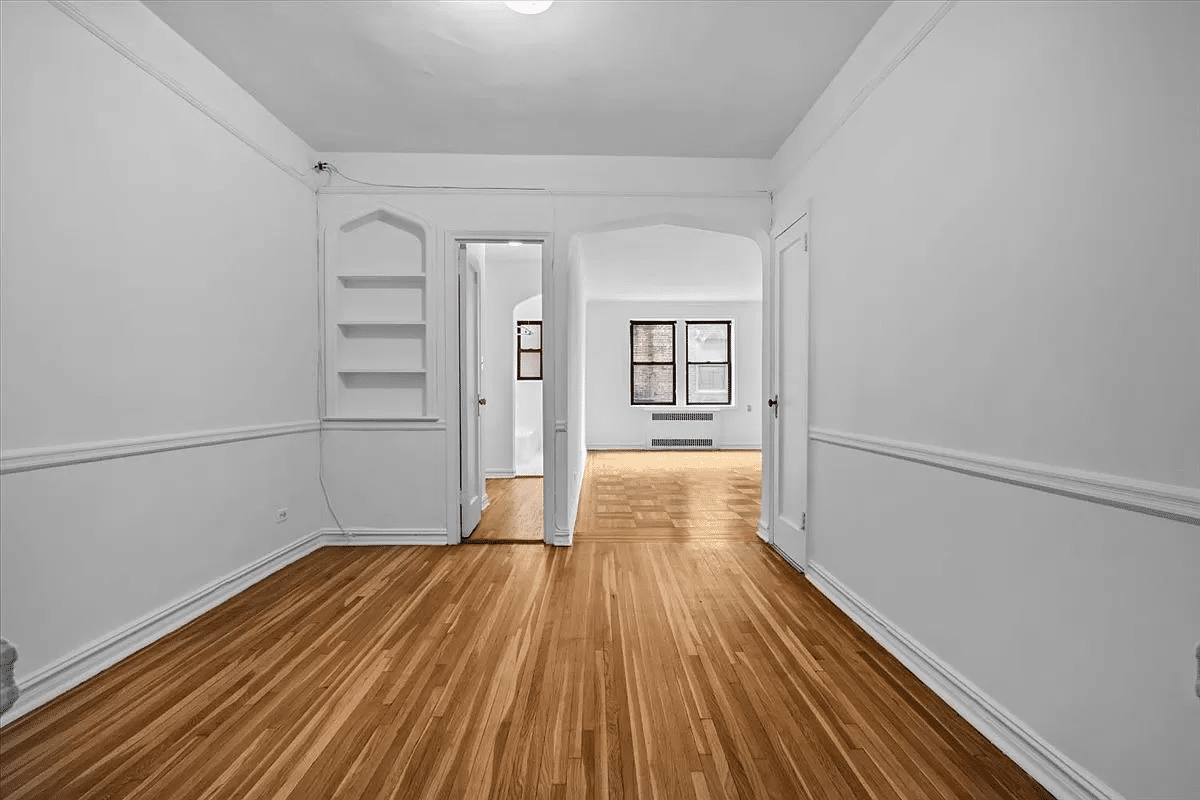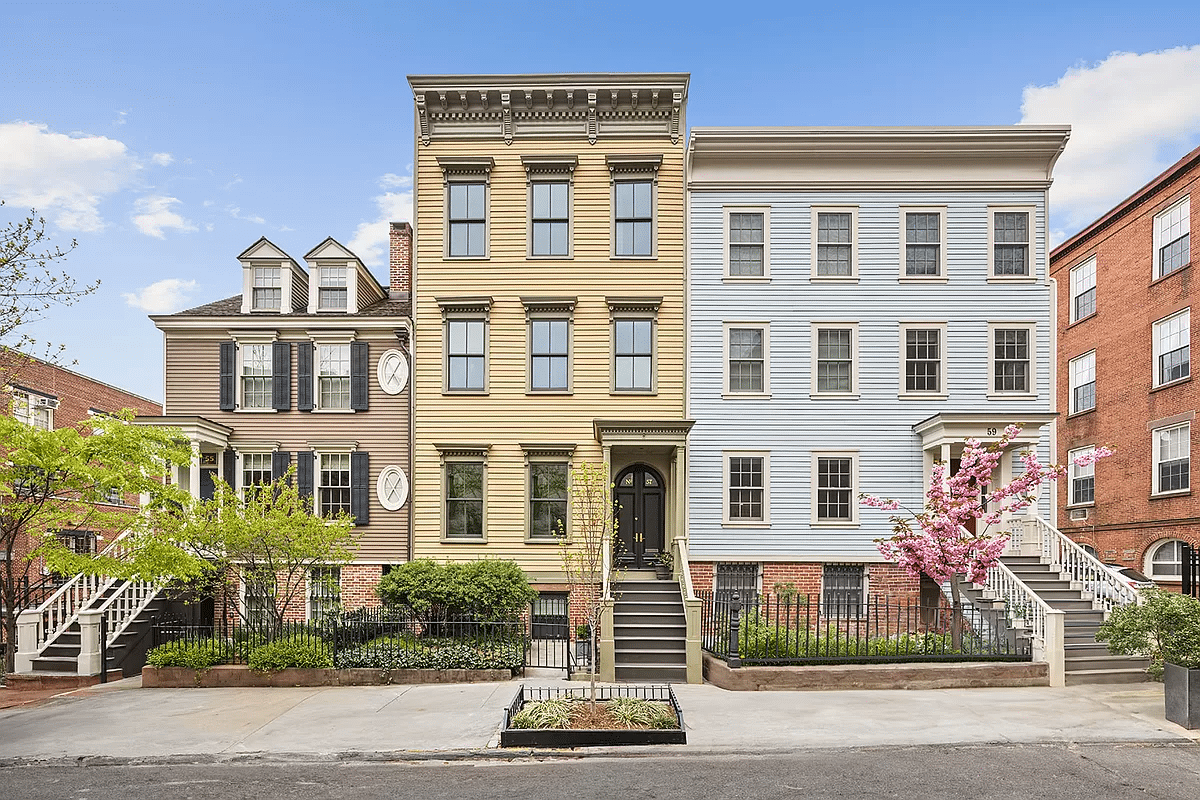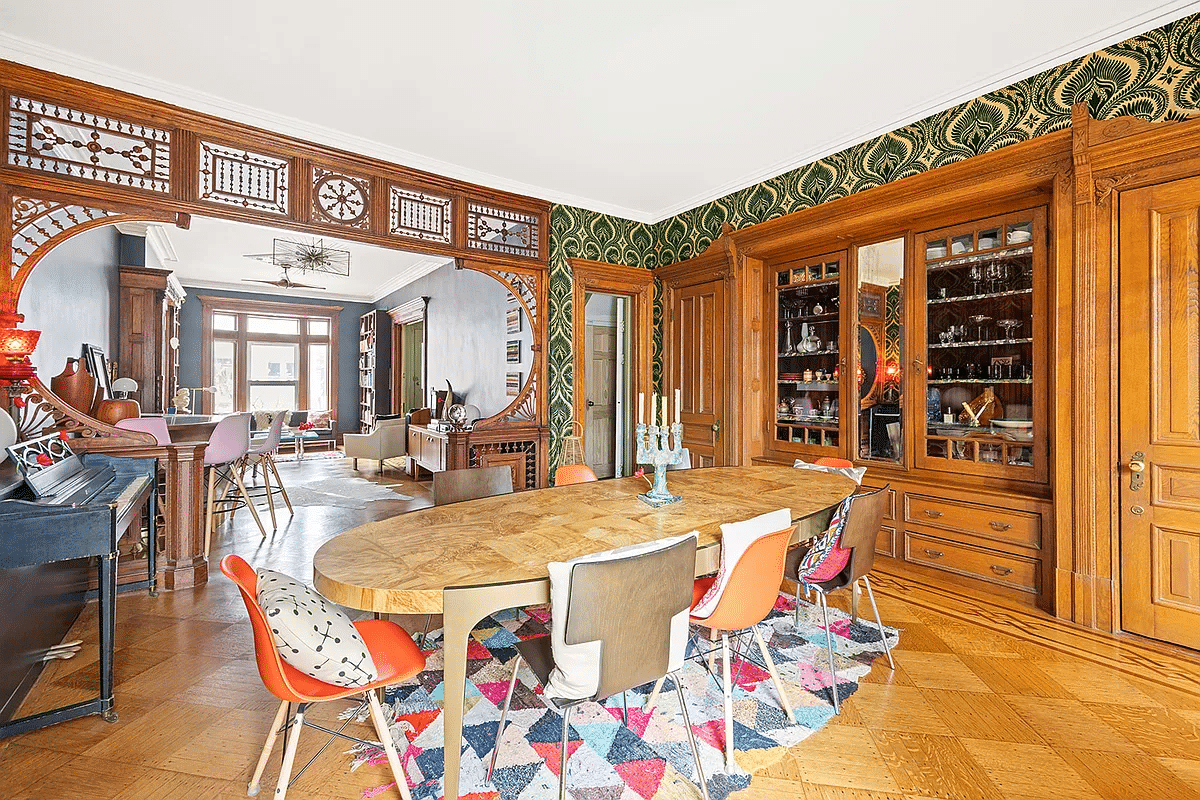Films by Taiwan New Wave Cinema Leader Hou Hsiao-Hsien at Museum of Moving Image
Films from Taiwan’s New Wave Cinema Movement, which had its heyday in the 1980s and 1990s, are marked by their realistic and sympathetic portrayals of a society that was dealing with urbanization, poverty and political upheaval. Generally, the movies depict regular people with normal lives, and instead of building to a climactic finish, they often…

Films from Taiwan’s New Wave Cinema Movement, which had its heyday in the 1980s and 1990s, are marked by their realistic and sympathetic portrayals of a society that was dealing with urbanization, poverty and political upheaval. Generally, the movies depict regular people with normal lives, and instead of building to a climactic finish, they often carry on at a real-life pace. The leader of this movement is Hou Hsiao-hsien, a prolific actor, singer, producer, and director known for his minimalist dramas with extensive improvisation and sensuous nuances.
From September 12th through October 17th, the Museum of the Moving Image will host Also Like Life, a series that will screen all of Hou’s 17 features on celluloid (including two new 35mm prints), plus rare shorts, and a sidebar of related films, such as Olivier Assayas’s documentary HHH: A Portrait of Hou Hsiao-hsien. Before some screenings, film experts will provide introductions.
More information and more images after the jump.
Flowers of Shanghai: This drama follows the fates of four “flower girls” working together in a brothel in the British section of Shanghai in 1884. Inside the sealed, illusory world of the flower house, fading Crimson fears losing the attention of Master Wang to Jasmin, while naïve Jade allows herself to be drawn into a suicide pact. Friday, September 12th, 7 pm, with an introduction by Richard I. Suchenski.
Cute Girl: Hou’s directorial debut is the first of two films that he would make co-starring two pop singers then at the height of their fame, Hong Kong’s Kenny Bee and Taiwan’s Feng Fei-fei. Bee, a surveyor preparing rural Taiwan for development, meets Feng, a city girl visiting family in the countryside, and the encounter disrupts her plans for marriage. Saturday, September 13th, 2:30 pm.
HHH: A Portrait of Hou Hsiao-hsien: French director Olivier Assayas, a longtime friend and admirer of Hou’s, created this affectionate and probing portrait of the filmmaker for the French TV series Cinema de Notre Temps. Saturday, September 13th, 4:30 pm.
The Puppetmaster: In the acclaimed second chapter of his “Taiwan Trilogy,” Hou illustrates the childhood and early adulthood of Li Tien-lu, an 84-year-old Taiwanese puppet master, using a combination of documentary technique and elegant dramatization. The real Li, who had previously appeared in bit parts for Hou, functions as on- and off-screen narrator, as the film travels from 1908 to 1945, showing the years of Japanese rule as they impact one man’s life, including a ban of street theater in Taiwan during the Sino-Japanese war and recruitment of puppet-art for propaganda purposes. Saturday, September 13th, 7 pm, with an introduction by J. Hoberman.
A Summer at Grandpa’s: When four-year-old Ting-Ting and 11-year-old Tung-Tung’s mother goes into the hospital, they are packed off to spend the summer with her father, a country doctor. Scenes of pastoral, bucolic idyll are combined with indications of a darker side to country life, including roadside robberies, sexual assaults, and shotgun weddings. Sunday, September 14th, 2:30 pm.
Cheerful Wind: A photographer travels with her TV producer boyfriend and his film crew to shoot a detergent commercial in a seaside village. There she strikes up a relationship with a former medic blinded in an ambulance crash. When they reencounter in Taipei, where he is preparing to undergo an operation to restore his sight, their connection intensifies. Sunday, September 14th, 4:30 pm.
Three Times: In three segments, set respectively in 1966, 1911, and 2005, Hou depicts three love stories between three sets of characters (played each time by Shu Qi and Chang Chen), under three different periods of Taiwanese history and governance. The 1966 segment has a soldier falling for a pool hall girl, the 1911 segment is set in a brothel, and the 2005 segment features a bisexual female pop singer and a photographer. Sunday, September 14th, 7 pm, with an introduction by Amy Taubin.
Millennium Mambo: A bar hostess fed up with her jealous boyfriend finds a refuge of sorts with a gangster named Jack. Friday, September 19th, 7:30 pm.
Good Men, Good Women: While actress Liang Ching is preparing to play in a 1940s-set historical epic called “Good Men, Good Women,” someone is terrorizing her by faxing her pages from her stolen diary. Her story is criss-crossed by colorful flashbacks to her affair with the now-deceased Ah-wei, as well as black-and-white film-within-a-film scenes in which Liang imagines the movie about the anti-Japanese resistance that she is to appear in. Saturday, September 20th, 2:30 pm.
The Boys from Fengkuei: Three teens from the Penghu Islands, in pre-adult limbo before their compulsory military service, travel from their fishing village to Kaohsiung, the second-largest city in Taiwan, where they find part-time employment. This coming-of-age-story is a string of moving vignettes, showing the boys roughhousing, sneaking into an arthouse, and following one of their number as he becomes enamored of a hoodlum’s girlfriend. Sunday, September 21st, 5 pm.
Taipei Story: Returning to Taiwan from a stint in the United States, Lung has abandoned his dreams of a baseball career to join his family’s textile business. While Lung is lodged in the past, his real-estate developer girlfriend Chin sees career opportunities ahead, and their relationship comes apart at the seams with frightful clarity. Sunday, September 21st, 7:30 pm.
Café Lumière, preceded by The Electric Princess Picture House: In Café Lumière, Hou applies low-angle perspective to this film set in a distinctly contemporary Tokyo that looks backwards to the city’s disappearing past. At the center is Yoko (pop star Yo Hitoto), a writer investigating the life of a Japanese composer of the 1930s. She is pregnant by a man she does not want to marry, and has found a kindred spirit in a used-bookstore owner who aids her research. Preceded by The Electric Princess Picture House, Hou’s contribution to the 2007 anthology film To Each His Own Cinema. Friday, September 26th, 7 pm.
The Green, Green Grass of Home: Hou’s third and last vehicle for Kenny Bee was this Cinemascope musical in which Bee plays a substitute teacher newly arrived from Taipei to a country village, where he begins a romance with a fellow teacher, much to the chagrin of his city girlfriend who comes to drag him back. Hou gave the schoolchildren free reign in front of the camera. Saturday, September 27th, 2:30 pm.
Flight of the Red Balloon: Seven-year-old Simon and his life with mother Suzanne, a performance artist, are seen through the eyes of a Chinese student hired as Simon’s nanny. Song Fang, an actual film student, is essentially playing herself, and the free improvisations give the proceedings a winning air of play, appropriate to a movie that features a sentient balloon as Simon’s benevolent companion. Sunday, September 28th, 4:30 pm.
A Borrowed Life: This film follows a working-class Taiwanese family from the aftermath of independence from Japanese rule to the 1980s, centering on the relationship between father, coal miner Sega, and son Wen-jian (who is played by three actors). Sunday, September 28th, 7 pm.
A Time to Live and a Time to Die: This movie depicts Hou’s on-screen alter-ego Ah-Hsiao (nicknamed “Ah-Ha”) from 1947 to 1965, including an early immersion in street gang culture. The film’s scope poignantly depicts the toll of time, the presence-in-absence of the left-behind mainland, and Taiwan’s gradual changing of the generational guards. Friday, October 3rd, 7 pm.
Daughter of the Nile: In this vehicle for Taiwanese pop star Lin Yang, she plays a disaffected KFC server looking after her wannabe gangster brother; her only escape is found in manga comic books. Saturday, October 4th, 2:30 pm.
The Sandwich Man: A portmanteau film comprised of three separate segments illustrating life in Cold War Taiwan, when American influence and money were ubiquitous, the film concerns an impoverished young man who feeds his family by taking a job as a human signpost. Sunday, October 5th, 5 pm.
Growing Up: The travails of Little Pi, an adolescent in 1950s Taiwan, are at the core of this film. Little Pi’s experiences of young love and delinquency are narrated by a neighbor and classmate. Sunday, October 5th, 7:30 pm.
Goodbye South, Goodbye: This is a portrait of the lives of small-time hoods rendered in rhythm-of-life anecdotal detail. Gao is the ringleader of a circle of layabouts including his faithful sidekick, Flathead, and their girlfriends, Pretzel and Ling. He is also the originator of petty crime schemes like selling hogs to the government, which promise to get the gang nowhere fast. Friday, October 10th, 7 pm.
Dust in the Wind, preceded by La Belle Epoque: Wan and Huen, teen lovers, are separated when Wan leaves their mining village to seek work in Taipei. Huen follows him, but the big city exercises a toxic influence on them and their fellow provincial migrants, who are doing odd jobs just to scrape by. The couple’s bond will be sorely tested when Wan is called up for compulsory military service. Preceded by La Belle Epoque (2011, 6 mins.) Hou’s contribution to the 2011 anthology film 10 + 10. Saturday, October 11th, 2:30 pm, with an introduction by Phillip Lopate.
A City of Sadness: This intimate epic chronicles the tragedies that befall the three Lin brothers—a gangster, a translator for the Japanese administration, and a photographer—and those around them during a chaotic period in Taiwan’s national history, between the end of Japanese Imperial rule (1945) and the secession from mainland China and creation of martial law (1949–1987). The film was groundbreaking in its depiction of the “February 28 Incident” of 1947, when thousands of native Taiwanese were killed in protests against the Nationalist government. Sunday, October 12th, 6 pm.
I Wish I Knew: This sneakily subversive documentary commissioned by the Shanghai World Expo shows the great mainland Chinese filmmaker Jia traveling from Shanghai to Hong Kong and Taiwan, tracing the history of the port city on the Yangtze—and, in effect the history of China—through personal reminiscences and cinematic testimonies, restoring information (and images) occluded or censored by the official Party line. Friday, October 17th, 7 pm.
Details: Also Like Life: The Films of Hou Hsiao-Hsien, screenings will take place in the Sumner M. Redstone Theater or the Celeste and Armand Bartos Screening Room, Museum of the Moving Image, 36-01 35th Avenue, Kaufman Arts District, free with museum admission ($12/$9 for persons over 65 and students with ID/$6 for children ages 3-12/free for children under 3).
Photos: MMI









What's Your Take? Leave a Comment